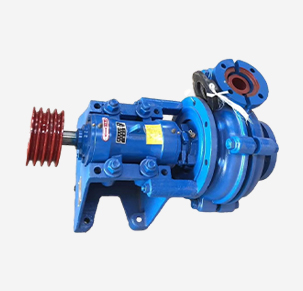Polish
- Afrikaans
- Albanian
- Amharic
- Arabic
- Armenian
- Azerbaijani
- Basque
- Belarusian
- Bengali
- Bosnian
- Bulgarian
- Catalan
- Cebuano
- Corsican
- Croatian
- Czech
- Danish
- Dutch
- English
- Esperanto
- Estonian
- Finnish
- French
- Frisian
- Galician
- Georgian
- German
- Greek
- Gujarati
- Haitian Creole
- hausa
- hawaiian
- Hebrew
- Hindi
- Miao
- Hungarian
- Icelandic
- igbo
- Indonesian
- irish
- Italian
- Japanese
- Javanese
- Kannada
- kazakh
- Khmer
- Rwandese
- Korean
- Kurdish
- Kyrgyz
- Lao
- Latin
- Latvian
- Lithuanian
- Luxembourgish
- Macedonian
- Malgashi
- Malay
- Malayalam
- Maltese
- Maori
- Marathi
- Mongolian
- Myanmar
- Nepali
- Norwegian
- Norwegian
- Occitan
- Pashto
- Persian
- Polish
- Portuguese
- Punjabi
- Romanian
- Russian
- Samoan
- Scottish Gaelic
- Serbian
- Sesotho
- Shona
- Sindhi
- Sinhala
- Slovak
- Slovenian
- Somali
- Spanish
- Sundanese
- Swahili
- Swedish
- Tagalog
- Tajik
- Tamil
- Tatar
- Telugu
- Thai
- Turkish
- Turkmen
- Ukrainian
- Urdu
- Uighur
- Uzbek
- Vietnamese
- Welsh
- Bantu
- Yiddish
- Yoruba
- Zulu
Telephone: +86 13120555503
Email: frank@cypump.com
gru . 19, 2024 15:25 Back to list
Self-Priming Slurry Pump for Efficient Material Transfer and Handling Solutions
Understanding Self-Priming Slurry Pumps Functionality, Applications, and Benefits
Self-priming slurry pumps are an essential component in various industries, designed specifically to handle abrasive and viscous materials. These pumps offer unique advantages over traditional pumps, making them ideal for applications in mining, construction, wastewater treatment, and more. This article provides an overview of how self-priming slurry pumps work, their applications, and the benefits they bring to industrial processes.
What is a Self-Priming Slurry Pump?
A self-priming slurry pump is engineered to draw liquid into the pump without requiring a separate priming system. This feature is particularly beneficial when dealing with slurry, which consists of liquid and solid particles that can clog or damage standard pumping systems. Self-priming functionality allows these pumps to maintain efficiency even when exposed to air, which might occur due to low liquid levels or interruptions in the slurry supply.
The design of a self-priming slurry pump typically includes an external casing that allows for air and liquid to mix. Inside the pump, a mechanism creates a pressure differential that facilitates the movement of slurry into the pump even in the absence of a continuous liquid source. This innovative design ensures that the pump is always ready to operate, thereby minimizing downtime and fostering continuous workflow.
Key Applications of Self-Priming Slurry Pumps
Self-priming slurry pumps are widely utilized across several sectors due to their ability to handle challenging materials
1. Mining Industry In mining operations, self-priming slurry pumps are crucial for transporting mineral slurries, tailings, and mine water. Their robust construction allows them to withstand harsh environments and the abrasive nature of the materials being pumped.
2. Construction In construction sites, these pumps are used to manage water and slurry materials from concrete mixing, excavation, and drainage processes. The ability to handle high solid concentrations without clogging is particularly valuable during civil engineering projects.
3. Wastewater Treatment Self-priming slurry pumps are also effective in treating wastewater containing solids. They aid in transferring sludge, biosolids, and other waste materials through the treatment process, ensuring efficient removal and processing.
self priming slurry pump

4. Petroleum and Chemical Industries These pumps are used to handle various viscous fluids, including chemicals and oil slurries. Their ability to self-prime means they can operate effectively in situations where traditional pumps might fail.
Benefits of Self-Priming Slurry Pumps
The advantages of self-priming slurry pumps extend beyond their functionality. Here are some of the key benefits
- Increased Productivity By eliminating the need for manual priming or auxiliary priming systems, these pumps reduce the time and labor involved in starting up and maintaining the system. This leads to increased operational efficiency and productivity.
- Reduced Maintenance Self-priming slurry pumps are designed to minimize wear and tear on components, which typically results in less frequent maintenance and repairs. Their durability means they can withstand harsh operating conditions better than many traditional pumps.
- Versatility These pumps can handle varying concentrations of solids and can adapt to different materials without requiring significant changes or adjustments. This versatility makes them suitable for a wide range of applications.
- Cost-Effectiveness Although the initial investment might be higher compared to standard pumps, the long-term savings associated with reduced downtime, lower maintenance costs, and increased efficiency can make self-priming slurry pumps a more economical choice.
Conclusion
In summary, self-priming slurry pumps play a pivotal role in efficiently transporting challenging materials across various industries. Their advanced design, combined with numerous benefits such as increased productivity, reduced maintenance, and versatility, makes them indispensable for operations where traditional pumps fall short. Understanding the functionalities and advantages of self-priming slurry pumps is crucial for industries that deal with abrasive and viscous slurries, as it can significantly impact their operational efficiency and success.
-
High-Performance Air Pumps for Sand & Gravel | Efficient Transport
NewsAug.03,2025
-
ISG Series Vertical Pipeline Pump - Chi Yuan Pumps Co., LTD.|Energy Efficiency, Corrosion Resistance
NewsAug.03,2025
-
ISG Series Pipeline Pump - Chi Yuan Pumps | Energy Efficiency&Compact Design
NewsAug.03,2025
-
ISG Series Vertical Pipeline Pump - Chi Yuan Pumps Co., LTD.|High Efficiency, Low Noise, Durable
NewsAug.02,2025
-
ISG Series Vertical Pipeline Pump - Chi Yuan Pumps | High Efficiency, Low Noise
NewsAug.02,2025
-
ISG Series Vertical Pipeline Pump- Chi Yuan Pumps Co., LTD.|High Efficiency&Compact Design
NewsAug.02,2025










